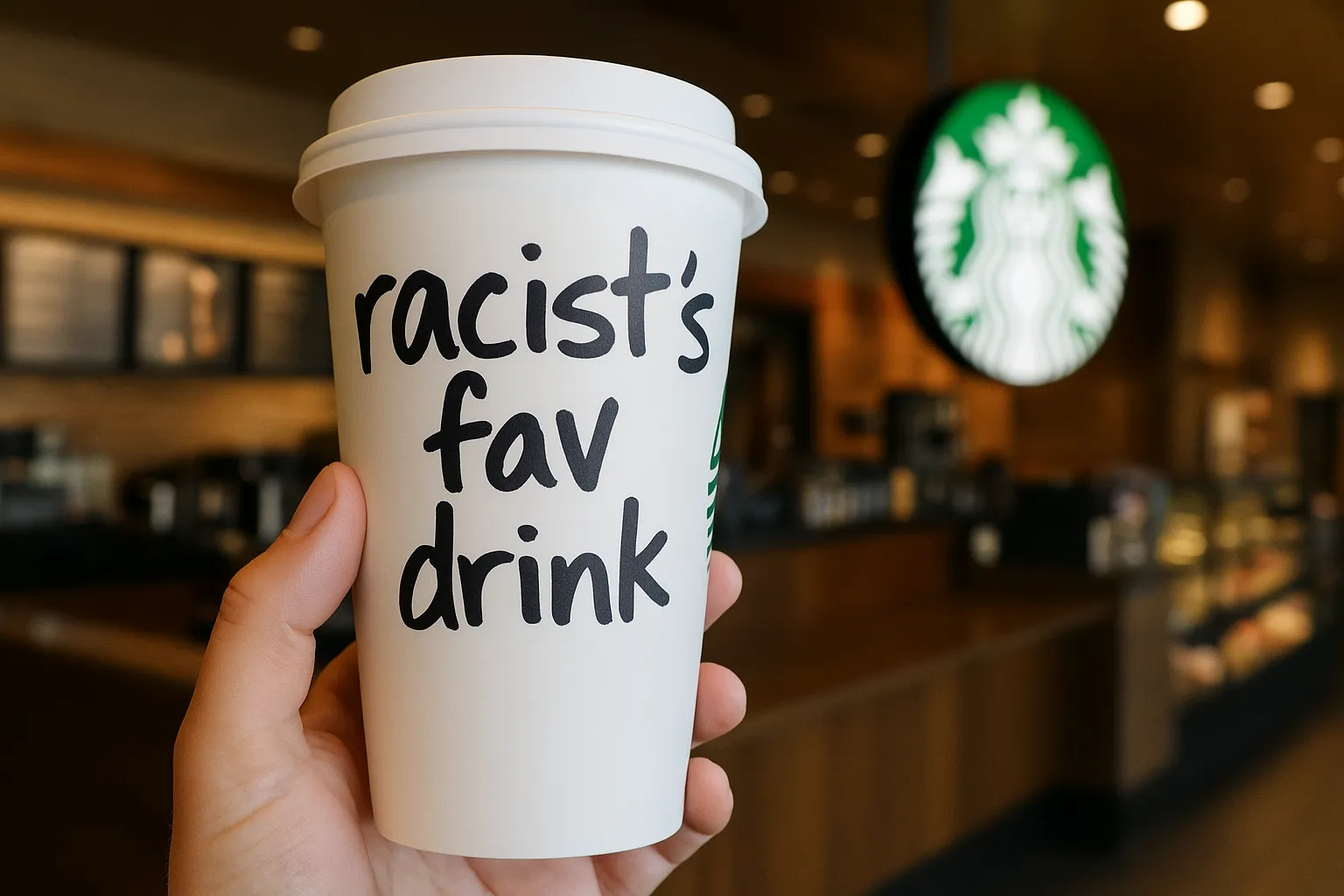The Starbucks Charlie Kirk incident in Ohio is more than a petty workplace scandal. It exposes the volatile collision between politics, consumer culture, and free speech in America. An employee was fired after writing “racist’s fav drink” on a customer’s cup, mocking Turning Point co-founder Charlie Kirk’s signature order. To some, the dismissal was accountability. To others, it was corporate censorship, a sign of how America has weaponised coffee cups in its endless culture wars.
Context: what happened inside Starbucks
Autumn Perkins, a customer in Middletown, Ohio, ordered a mint majesty with honey — Kirk’s well-known choice. When her drink arrived, the cup carried the scribbled insult. Perkins complained, the employee admitted responsibility, and Kroger (which operates the licensed Starbucks) terminated the worker.
Both Starbucks and Kroger issued statements. Starbucks stressed that such messages were unacceptable and violated its policies on respectful service. Kroger echoed the sentiment, declaring that the employee’s actions did not reflect the company’s values.
Mainstream media treated the episode as a disciplinary matter, a straightforward case of a worker overstepping the line. But this narrow view ignores the deeper context.

Oppositional Argument: why this incident matters
The Starbucks Charlie Kirk incident is not just about coffee. It reflects a broader climate where politics has seeped into every corner of life. From pronouns to pumpkin spice, corporate spaces are battlegrounds for ideological clashes.
Here, the question is not whether the employee’s action was professional — clearly, it wasn’t. The real issue is why a political grievance became inscribed on a coffee cup in the first place. Why is a grocery store barista carrying the culture war into her shift? Because politics has become totalising. Nothing is neutral anymore. Not even a cup of tea.
Analytical Breakdown: corporate culture vs. free expression
Corporations like Starbucks are caught in a paradox. They market themselves as inclusive spaces, yet they discipline employees harshly when “inclusivity” crosses into hostility. Kroger’s swift firing was a signal: customer respect trumps personal politics.
But the firings also illustrate how corporations outsource moral judgments. By punishing employees for political commentary, they claim neutrality while simultaneously enforcing a particular order — one where consumer comfort overrides all other values.
This raises uncomfortable questions. Do employees lose their right to political expression the moment they wear a company apron? Or is firing the only way to protect customers from ideological confrontation?
The consequences stretch beyond one store. For conservatives, this incident validates complaints about a hostile corporate culture where dissent against liberal icons is punished but mocking right-wing figures is tolerated until it goes public. For progressives, the firing shows that free speech does not shield employees from workplace consequences.
Human Perspective: the impact on ordinary people
Perkins, the customer, argued that firing was justified: “Actions have repercussions.” Her words capture the paradox. In a society obsessed with “cancel culture,” repercussions are now the rule, not the exception.
For employees, this incident is a warning: leave politics at the door, or risk unemployment. For consumers, it deepens the sense that every purchase is a political act — from boycotting Bud Light to choosing where to buy coffee. Even the morning latte has become a referendum on ideology.
Counterarguments
Critics argue that firing was excessive. The employee’s scribble, while offensive, could have been handled with discipline short of termination. Others note that Kirk himself has been accused of incendiary remarks, and that mocking a controversial public figure is hardly the same as targeting an ordinary customer.
Yet defenders of the decision insist that respect must be universal, regardless of politics. Once baristas start editorialising on cups, the company loses its claim to be a neutral space.
Conclusion: when politics poisons the coffee
The Starbucks Charlie Kirk incident shows just how poisoned American civic life has become. A cup of tea is no longer just a drink — it’s a flashpoint in the endless war between right and left. Corporations like Starbucks and Kroger will continue to face impossible choices: tolerate ideological expression and risk alienating customers, or police it and face accusations of censorship.
This is not about one employee in Ohio. It’s about whether America can ever return to a public sphere where a coffee is just a coffee, and not another front in the culture wars.
